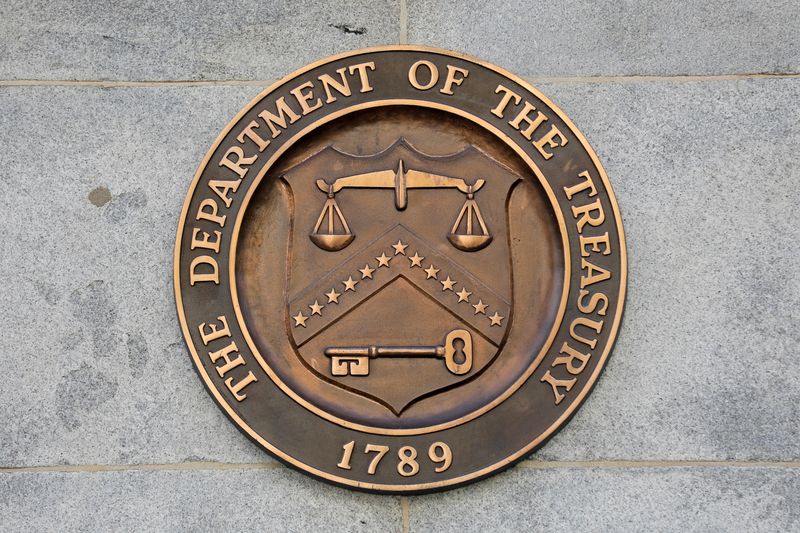
© Reuters
By Timour Azhari
BAGHDAD (Reuters) – The U.S. expects Iraq’s government to help it identify and disrupt the financing of Iran-backed armed groups in the country after a drone attack by Iraqi militants that killed three U.S. soldiers, a senior U.S. Treasury official said.
The Pentagon said the drone strike on a U.S. military outpost near the Jordan-Syria border on Sunday bore the “footprints” of Iraqi armed group Kataib Hezbollah, though a final assessment had not yet been made.
Iran-aligned groups have been waging attacks on Israeli and U.S. targets from Lebanon, Yemen, Iraq and Syria since the war between Palestinian ally Hamas and Israel erupted on Oct. 7.
Iraqi armed factions have claimed more than 150 attacks on U.S. forces in the region since.
“We are now in a situation where there has been a loss of American life in Jordan,” the Treasury official told Reuters, speaking on condition of anonymity, in line with regulations.
“These are, as a whole, groups that are actively using and abusing Iraq and its financial systems and structure in order to perpetuate these acts and we have to address that directly.”
He added: “Frankly, I think it is clearly our expectation from Treasury perspective that there is more we can do together to share information and identify exactly how these militias groups are operating here in Iraq.”
Iraq, a rare ally of both the United States and Iran with more than $100 billion in reserves held in the U.S., relies heavily on Washington’s goodwill to ensure its access to oil revenues and finances are not blocked.
The current Iraqi government came to power with the support of powerful, Iran-backed parties and armed groups with interests in Iraq’s highly informal economy, including the financial sector long seen as a money-laundering hotspot.
Still, Western officials have lauded cooperation with Iraqi Prime Minister Mohammed Shia al-Sudani towards carrying out economic and financial reforms meant to curb the ability of Iran and its allies to access U.S. dollars, and to bring the Iraqi economy into line with international standards.
That includes a push to link banks to the international financial system and promote e-payments in a society where cash remains king.
“I do feel like just in 12 to 13 months we’ve seen a tremendous amount of progress in all those spaces,” the Treasury official said.
‘DIFFICULT NEIGHBOURHOOD’
Iraq’s financial system was isolated from the world due to international sanctions imposed in the 1990s after then-leader Saddam Hussein invaded Kuwait.
Sanctions were lifted after the 2003 U.S-led invasion that toppled Saddam but little progress was made towards financial sector reforms during the years of sectarian bloodletting that followed.
Shi’ite Muslim armed groups and parties close to Iran acquired bigger influence in Baghdad following the invasion and are collectively the most powerful force in politics, though they do not often see eye-to-eye.
In line with U.S. sanctions on Iran, Washington has tried to curb Iranian access to U.S. dollars in Iraq, imposing enhanced scrutiny in 2022 of a central bank dollar auction that was rife with fake invoices and a major source of dollar diversion.
The Iraqi central bank requests its own dollars from the U.S. Federal Reserve and sells them to commercial banks, who in turn sell to businesses in the import-dependent economy. Around $200 million is auctioned daily.
Last year, the U.S. blacklisted 14 relatively minor banks involved in that auction and this week took action against one more it said was used to divert funds to Iran-backed groups.
Washington has previously called on Baghdad to take a more active role addressing concerns at banks.
“We are not trying to achieve perfection. This is a difficult neighbourhood and Iran is very good at this in particular,” the U.S. Treasury official said.
“I actually have some confidence we will achieve getting Iraq to international money-laundering and terrorism-finance standards, and that will remove a vast amount of the illicit finance capacity of this system.”
Source: Investing.com





























